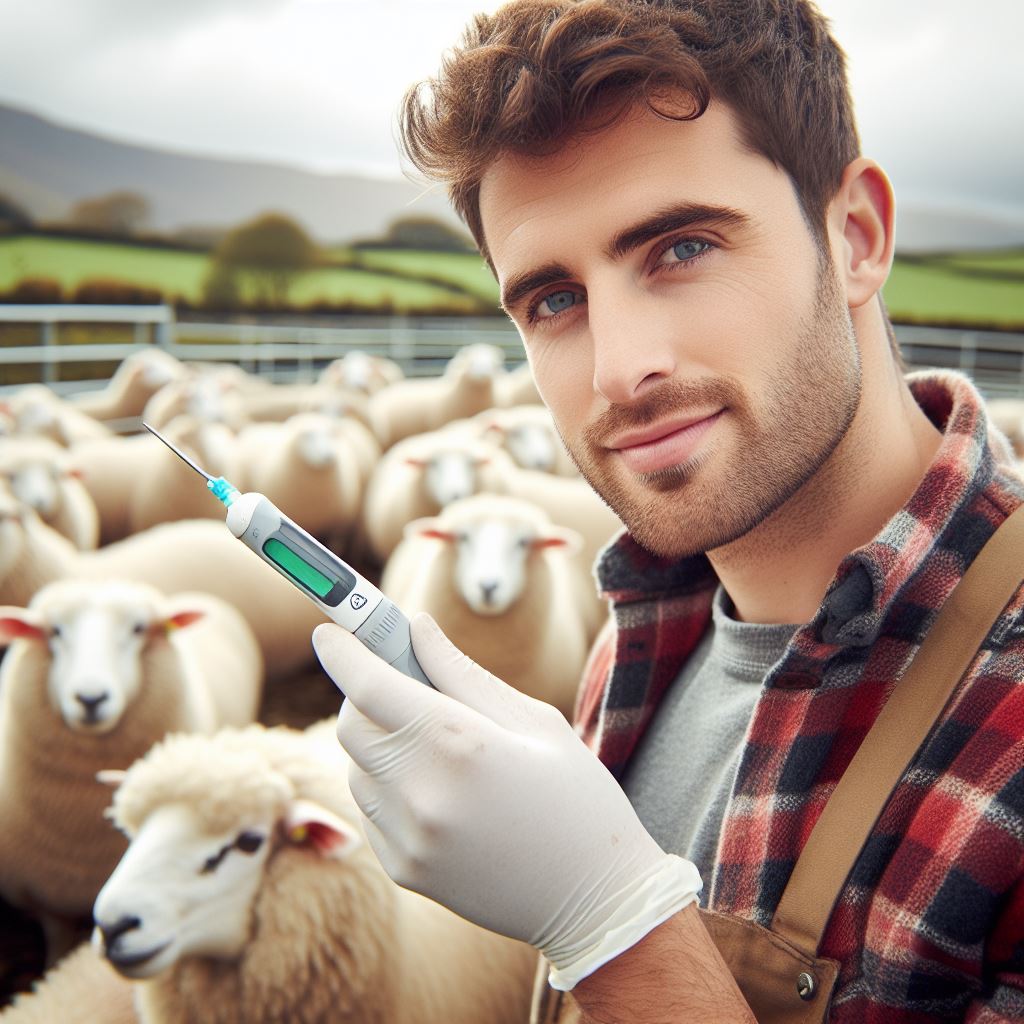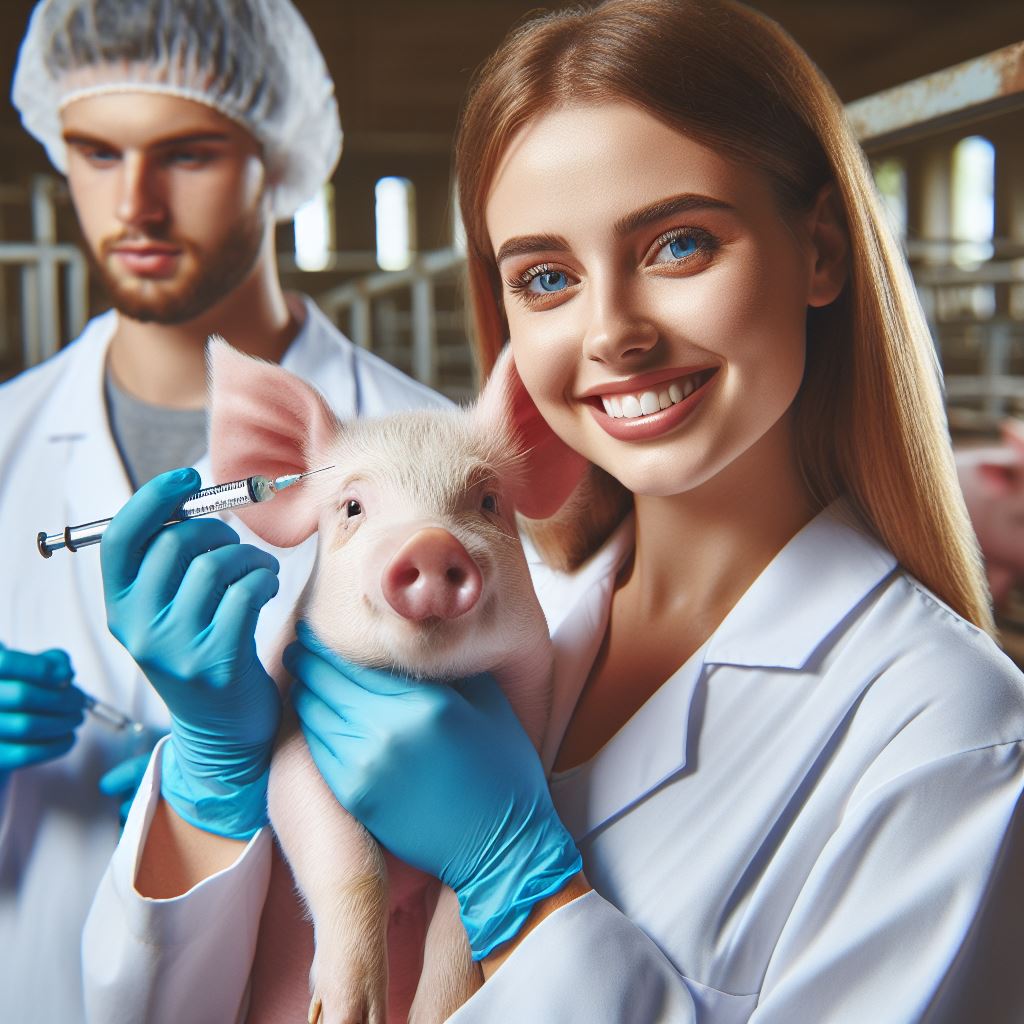Introduction
Let’s Explore Rabbit Feed Types: Balancing Nutrition & Growth
In rabbit farming, ensuring proper nutrition is paramount for the health and growth of these small mammals.
- Nutritional Significance: The role of balanced nutrition in the well-being and development of rabbits is crucial.
- Diverse Feed Types: Exploring different rabbit feed types is essential for providing a comprehensive and well-rounded diet.
- Balancing Nutrients: Achieving the right balance of proteins, fibers, vitamins, and minerals is key to supporting optimal growth.
- Feeding Strategies: Implementing effective feeding strategies ensures that rabbits receive the necessary nutrients for their developmental stages.
- Key Considerations: Factors such as age, breed, and purpose influence the choice of rabbit feed types and nutritional requirements.
Understanding the importance of nutrition and exploring the diverse range of rabbit feeds is fundamental for successful rabbit farming.
This section delves into the essential aspects of balancing nutrition and growth in rabbit farming.
Understanding the nutritional needs of rabbits
Nutritional requirements for different stages of growth
Rabbits have specific nutritional needs throughout their different stages of growth.
Understanding these requirements is crucial in ensuring their overall health and well-being.
Here, we will discuss the varying nutritional needs of rabbits during the different stages of growth.
Neonatal stag
- Colostrum: The first milk produced by the mother rabbit is rich in antibodies, providing essential immunity for the newborns.
- High milk fat content: Nursing kits rely solely on their mother’s milk, which is high in fat for their optimal growth and development.
Weaning stage
- Introduction to solid foods: As rabbits transition from milk to solid foods, it is important to introduce them to a balanced diet gradually.
- High fiber content: Fiber-rich foods like hay and grass help in the development of the kits’ digestive system.
Growth stage
- Protein-rich diet: During this stage, rabbits require protein for muscle development and growth. Pelleted feed with a high protein content is recommended.
- Calcium and phosphorus: These minerals are crucial for the development of strong bones and teeth. Leafy greens and alfalfa can provide these nutrients.
Essential nutrients needed for optimal rabbit health
Protein
- Essential for tissue repair, growth, and muscle development in rabbits.
- Sources of high-quality proteins include legumes, seeds, and certain vegetables.
Fiber
- Vital for maintaining a healthy digestive system in rabbits.
- Hay should make up the majority of a rabbit’s diet, providing the necessary fiber content.
Vitamins
- Vitamin A: Promotes good vision, healthy skin, and optimal growth. Carrots and leafy greens are rich in vitamin A.
- Vitamin D: Essential for calcium absorption and bone development. Natural sunlight exposure or vitamin D-fortified food is necessary.
- Vitamin E: Important for reproductive health and acts as an antioxidant. Leafy greens and whole grains contain vitamin E.
Minerals
- Calcium: Necessary for strong bones and teeth. Offer calcium-rich foods like kale and broccoli in moderate quantities.
- Phosphorus: Works with calcium in building strong bones and maintaining overall health. Pelleted feeds often contain adequate phosphorus levels.
Therefore, understanding the nutritional needs of rabbits is crucial for their overall well-being.
During different stages of growth, their requirements vary, ranging from colostrum and high milk fat in the neonatal stage to protein-rich diets and essential minerals during the growth stage.
By providing a balanced diet with adequate protein, fiber, vitamins, and minerals, rabbit owners can ensure optimal health and growth for their furry companions.
Read: Dairy Cow Diet Essentials for Maximum Milk Yield
Common types of rabbit feed
Rabbits require a well-balanced diet to maintain optimum health and promote steady growth.
Tackling this responsibility as a pet owner involves understanding the different types of rabbit feed available and ensuring their proper incorporation into the rabbit’s daily meals.
Transform Your Agribusiness
Unlock your farm's potential with expert advice tailored to your needs. Get actionable steps that drive real results.
Get StartedHay
Hay plays a crucial role in a rabbit’s diet. It not only promotes healthy digestion but also helps wear down their continuously growing teeth.
Additionally, the high fiber content in hay aids in preventing obesity, dental issues, and gastrointestinal problems.
When it comes to choosing the right hay for your rabbit, there are several options available.
Timothy hay is the most popular choice, as it is low in protein and calories, making it suitable for adult rabbits.
Orchard grass is another alternative that provides a variety of textures and flavors.
Alfalfa hay, on the other hand, is high in calcium and protein and is recommended for younger rabbits or those in need of extra nutrients.
Meadow hay is a combination of different grasses and is suitable for rabbits with a sensitive digestive system.
Pellets
Pellets are an essential part of a rabbit’s diet, providing a concentrated source of necessary nutrients.
It is crucial to select high-quality pellets that are specifically formulated for rabbits to ensure a balanced diet.
These pellets should contain a controlled level of protein to prevent any health issues.
Rabbit pellets typically consist of a combination of various ingredients, with the primary one being hay.
They are also enriched with essential vitamins and minerals, such as Vitamin A, Vitamin D, and calcium.
Additionally, the high fiber content helps maintain a healthy digestive system and prevents selective eating, ensuring that rabbits receive a balanced nutrition intake.
Fresh vegetables and fruits
Incorporating fresh vegetables and fruits into a rabbit’s diet is crucial to provide added variety and increase their vitamin and mineral intake.
However, it is essential to introduce new foods gradually to prevent digestive upset.
Supplementing with fresh produce not only adds nutritional value to a rabbit’s diet but also helps keep them hydrated.
Leafy greens like parsley, romaine lettuce, and cilantro are excellent options.
Carrots, bell peppers, and cucumbers can also be included but should be given in moderation due to their high sugar content.
Fruits such as apples and berries can serve as occasional treats.
Most importantly, ensuring a well-balanced diet for rabbits involves incorporating different types of feed.
Hay is essential for healthy digestion and preventing obesity, while pellets provide essential nutrients.
Fresh vegetables and fruits offer variety and supplement necessary vitamins and minerals.
It is crucial to choose the appropriate types of food for rabbits to promote their overall health and growth.
Read: Layer Hen Feed: Boosting Egg Production Naturally
Showcase Your Farming Business
Publish your professional farming services profile on our blog for a one-time fee of $200 and reach a dedicated audience of farmers and agribusiness owners.
Publish Your Profile
Balancing nutrition and growth in rabbits
Determining the right feed ratios based on growth stages
Rabbits require different feed ratios depending on their growth stages to ensure proper nutrition.
During the first weeks, rabbits should be fed a diet high in milk, which can be supplemented with commercial milk replacers.
As they start weaning, the diet should transition to higher fiber content, including hay and pellets.
For rabbits between 3-4 months, it is important to provide a balanced diet that consists of 70% hay, 25% pellets, and 5% vegetables.
From 4 months and onwards, rabbits can be introduced to more variety in their diet, including fresh greens and limited fruits.
It is crucial to monitor their weight and adjust the feed ratios accordingly to prevent malnutrition or obesity.
Monitoring rabbit growth and adjusting feed accordingly
Regularly weighing rabbits can help determine if they are growing at a healthy rate.
A sudden increase or decrease in weight may indicate an underlying health issue or improper nutrition.
Rabbits should be weighed at least once a month, especially during growth spurts or pregnancy.
If a rabbit is not gaining weight or appears underweight, it may require an increase in feed portions or additional high-quality supplements.
Conversely, if a rabbit is gaining weight too quickly or appears overweight, feed rations should be adjusted to reduce calorie intake.
Providing an appropriate exercise area for rabbits is also essential to ensure their growth and metabolism are in balance.
Avoiding overfeeding and obesity risks in rabbits
Overfeeding can lead to obesity, which negatively impacts a rabbit’s overall health and lifespan.
Obese rabbits are more prone to developing various health problems, including arthritis and cardiac issues.
To prevent overfeeding, it is crucial to measure and distribute the appropriate feed portions according to the rabbit’s age and size.
Feeding should follow a strict schedule, and treats should be given sparingly to avoid excessive calorie intake.
Regular exercise and providing engaging toys can help prevent boredom or overeating due to lack of mental stimulation.
Consulting a veterinarian for guidance on appropriate feed types, portion sizes, and exercise routines is highly recommended for proper rabbit care.
Read: Sheep Feeding 101: Nutrition for Flock Health
Additional considerations for rabbit feed
While balancing nutrition and growth is essential in a rabbit’s diet, other considerations are important for their overall health and well-being.
Water availability and importance
Rabbits require constant access to fresh, clean water.
Water is crucial for their digestion, nutrient absorption, temperature regulation, and overall hydration.
Ensure you provide your rabbits with a suitable water dispenser that is easy to access and clean.
The dispenser should be checked daily to make sure it is working properly and refilled as needed.
If you notice any changes in water consumption patterns or if your rabbit is not drinking enough water, it is important to consult a veterinarian as it may be a sign of an underlying health issue.
Understanding potential dietary allergies or sensitivities
Just like humans, rabbits can have allergies or sensitivities to certain foods.
It is important to be aware of any adverse reactions your rabbit may have and take appropriate action.
Some rabbits may develop diarrhea, gas, or other digestive issues when fed certain ingredients.
Common allergens for rabbits include grains like wheat and corn as well as specific vegetables like broccoli or cauliflower.
If you suspect your rabbit has a dietary allergy or sensitivity, it is best to consult a veterinarian to determine the cause and develop a suitable diet plan.
Providing variety and enrichment in the diet
Rabbits thrive on a diverse and enriching diet.
Offering different types of food not only provides essential nutrients but also stimulates their natural foraging behaviors and prevents boredom.
Introduce a variety of vegetables, herbs, and leafy greens to provide a range of flavors and textures.
Rotate the types of hay you offer, such as timothy, orchard grass, or alfalfa, to add excitement to their meals.
You can also provide enrichment activities like hiding treats or hanging hay-filled toys to keep your rabbits mentally stimulated and physically active.
Remember that any new food should be introduced gradually to avoid digestive upsets.
Monitor your rabbits’ reactions, and if any adverse effects are observed, consult a veterinarian.
By considering these additional factors in a rabbit’s diet, you can ensure their nutritional needs are met while promoting their overall health and well-being.
Read: Top Tech in Modern Cattle Farming
Conclusion
Recap of the importance of balancing nutrition and growth in rabbits
Balancing nutrition and growth in rabbits is crucial for their overall health and development.
Showcase Your Farming Business
Publish your professional farming services profile on our blog for a one-time fee of $200 and reach a dedicated audience of farmers and agribusiness owners.
Publish Your ProfileProviding them with the right feed types ensures they receive the necessary nutrients to support their growth and prevent any nutrient deficiencies or excesses.
By offering a balanced diet, rabbit farmers can promote healthy weight gain, muscle development, and proper bone formation in their animals.
Additionally, it helps prevent digestive issues and enhances the immune system, reducing the risk of diseases.
Final thoughts and recommendations for rabbit farmers
Rabbit farmers should prioritize finding the right balance of feed types to optimize the nutrition and growth of their rabbits.
This can be achieved by consulting with a veterinarian or nutritionist who specializes in rabbit nutrition.
It is also important to regularly assess the body condition of the rabbits to monitor their growth progress.
Adjustments to their feed types and quantities may be necessary as they reach different stages of growth.
Rabbit farmers should also remember that while nutrition is crucial, other factors such as exercise, proper housing, and stress management contribute to the overall well-being of their rabbits.
By considering all these aspects, rabbit farmers can ensure the long-term health and success of their rabbits, while creating a sustainable and profitable rabbit farming operation.
Balancing nutrition and growth in rabbits is a continuous process that requires careful attention and consideration.
With proper care and feed management, rabbit farmers can support the healthy growth and development of their rabbits and create a thriving rabbit farming business.




